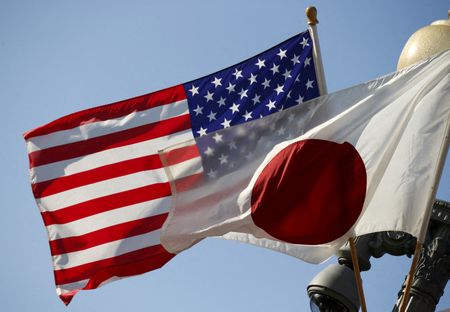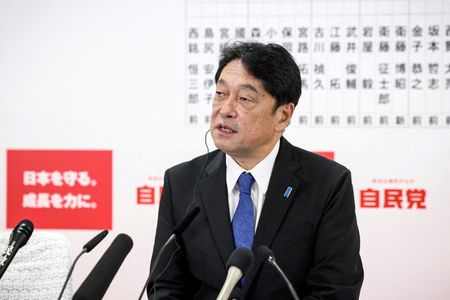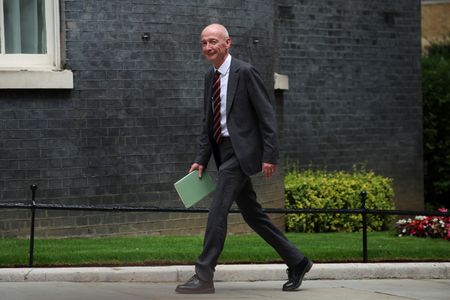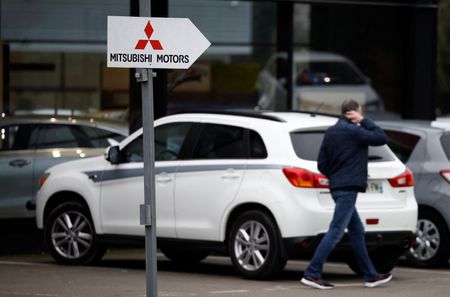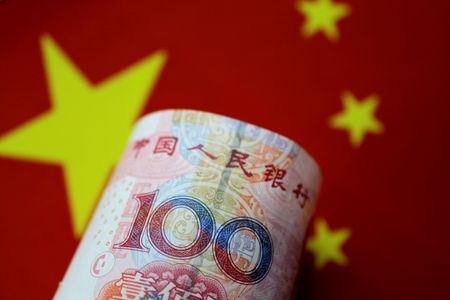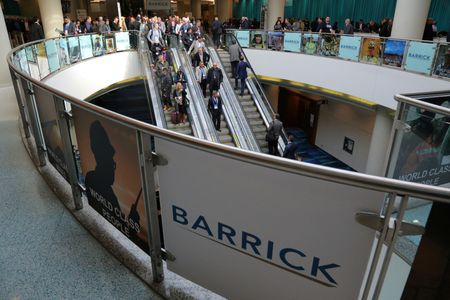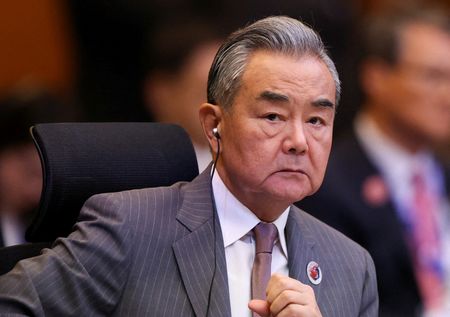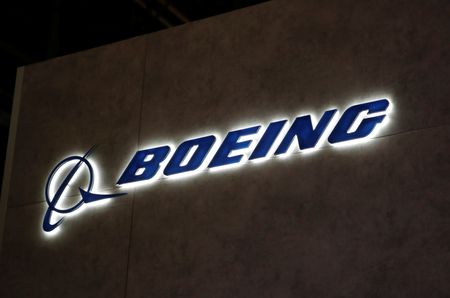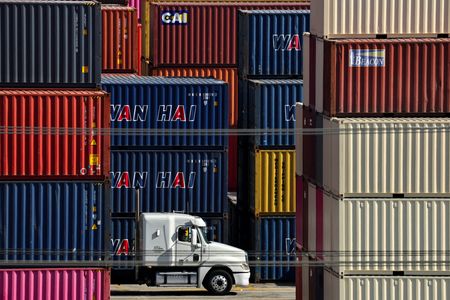WASHINGTON (Reuters) -The policy chief of Japan’s ruling Liberal Democratic Party on Monday called on U.S. President Donald Trump to reconsider his plans for reciprocal tariffs, saying they could negatively impact Indo-Pacific security.
Former defense minister Itsunori Onodera said Tokyo was particularly concerned by the effect in Southeast Asia, shown by the current visit there by Japan’s Prime Minister Shigeru Ishiba.
Speaking at Washington’s Center for Strategic and International Studies think tank, Onodera warned that countries of the 10-member Association of Southeast Asian Nations “may become more distant” from the U.S. because the tariffs.
“That’s a concern that we have,” he said, speaking via an interpreter. “I hope… the Trump tariffs will be reconsidered.”
Trump hit Japan with 24% tariffs on its exports to the U.S. and ASEAN nations also have been targeted, although, like most of the levies, they were paused until July to allow for negotiations. A 10% universal rate remains in place, as does a 25% duty on cars, a mainstay of Japan’s export-heavy economy.
Japan’s trade negotiator Ryosei Akazawa is due in Washington for a second round of negotiations this week.
Onodera said Ishiba was profoundly concerned about ASEAN. “The Trump tariffs can have a very big impact, not just on economics, but to our ally in the U.S., we’d like to say they could have a potentially very big impact in security as well,” he warned.
Onodera said stability in East Asia required the U.S. and Japan to offer improved deterrence, and added: “We hope that the Trump tariffs will not damage that.”
Washington should keep in mind maintenance work Japan conducts on U.S. naval vessels and other security collaboration, amid increased tensions and threats posed by China, Russia and North Korea, Onodera said.
He said Japan was the No. 1 foreign investor in the U.S., creating many jobs and U.S. exports, and cautioned: “With the Trump tariffs, Japanese companies could be weakened. If so, then they wouldn’t be as capable of investing in the U.S.”
Onodera also expressed concern about dismantling of the U.S. Agency for International Development and said China would step in where the U.S. has pulled out. He said Japan could help fill the gap.
“We hope that this structure will be eventually rebuilt, but in the meantime, maybe there’s something Japan can do. Maybe this is the time for Japan to support the United States.”
(Reporting by David BrunnstromEditing by Bill Berkrot)

